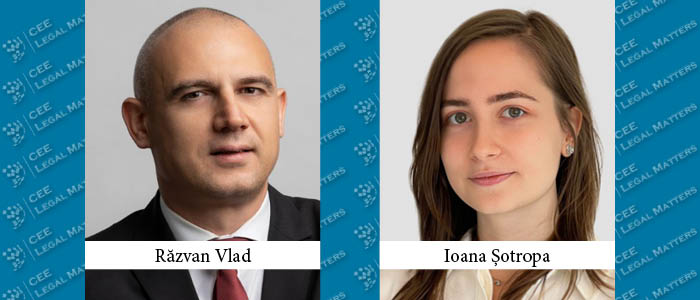While rendering day-to-day corporate advice to various clients, we have noticed lately a trend specific to limited liability companies, which involves allowing the directors of the respective companies to delegate all their powers to another individual for certain operations, either via the Articles of Incorporation or by resolution of shareholders.
The matter itself should not raise specific concerns, as this right is already provided by the Companies Law 31/1990 (i.e., the possibility for the director to delegate his powers). However, the way such delegation of powers is actually understood by the granter and recipient thereof may raise some questions in terms of the limits that should be observed.
To begin with, the director of a company is liable for the internal management and governing functions. According to Article 70 of the Companies Law 31/1990 (hereinafter referred to as the “Companies Law”), he may perform all operations required for the fulfillment of the company’s object of activity, with the caveat of the restrictions provided by the Articles of Incorporation. Hence, the directors have a quite broad portfolio of duties and responsibilities, with the mention that they may be limited if the shareholders consider it necessary.
Bearing in mind the above, it is likely in practice that the director may not carry out all the necessary activities (as the duties may be quite broad and time-consuming) and may use the mechanism provided by Article 71 of the Companies Law to delegate some of his power to a trustworthy third party.
In this case, the director may delegate the right to represent the company if the Articles of Incorporation of the company or a GMA (“General Meeting Assembly”) resolution has expressly granted such delegation. Consequently, the relationship of conventional representation is formed under the Civil Code, and such delegation will be materialized via a power of attorney. According to Article 2016 of the Civil Code, the power of attorney may be either general, authorizing the attorney-in-fact to carry out only acts of conservation or administration, or special, expressly authorizing the attorney to conclude acts such as alienation, encumbrances, or settlements.
The right of delegation is a useful instrument in carrying out a company’s activity, but we note that its excessive application by the director can have long-term consequences.
First, an unlimited delegation of the director’s responsibilities should not be entirely compatible with the regulatory environment of the director position from a corporate perspective. It could even be perceived as a slight circumvention of the law (despite the right to delegate), given that the director was nominated intuituu personae, and shareholders would expect the director to provide his services in this regard.
Nonetheless, in practice, many directors tend to use this specific tool of delegation towards third parties and therefore deviate to a certain extent from the will of the shareholders, although the director remains liable to the latter.
The reasons behind the exaggerated use of the right to delegate are the generality of art. 71 and the absence of express sanctions in case certain duties fall under the umbrella of delegation. Article 71 establishes a broad framework for the implementation of the power of delegation. The only sanction contained in the article is the joint liability triggered by the damages produced if the director delegates his duties without having the right to act in this sense. In addition, the rest of the provisions of the Companies Law do not add limits of application or possible sanctions in case of extending such rights of delegation. Subject to the generality of the law, we may consider that companies are given the possibility to define their own context of application of Article 71, as they consider suitable for their situation. However, in practice, most companies choose to include in the Articles of Incorporation the right of the director to delegate his responsibilities without any specific limitation or amendment regarding the person that he may substitute or the duties that he may delegate. The consequence is that the director remains with the possibility of delegating all his power to another individual.
However, the legislation highlights the importance of this role in a company in multiple ways. Starting from the appointment, the director is named by the shareholders through the Articles of Incorporation, considering his qualities and capabilities of managing the company’s activities (intuitu personae). In this sense, the Companies Law establishes requirements for registration with the Trade Register for the purpose of making the appointment of the director opposable to third parties.
First, in doctrine, the transfer of powers of a director in their entirety was seen as prohibited. Article 71 was considered a derogation that permits only a partial or limited transfer. Unlimited delegation reduces the importance of strict compliance with the law in terms of the conditions that a director must fulfill and makes the director’s mandate “partially devoid of content”.
Second, excessive delegation can expose the parties involved in the commercial relationships to the risk of damages. In fact, in jurisprudence, we can find numerous decisions where the attorney-in-fact was held liable for causing damages to the company. In these decisions, the name used by the courts for the attorney is the “de facto director”.
Since there is no obligation to publish the empowerment act, only the contracting parties acknowledge this delegation. Consequently, third parties who rely on public documents are not aware of the possible change in the management of the business that the attorney-in-fact may bring. The lack of knowledge of who runs in fact the company may likewise affect future business relationships.
In addition, the company and the de jure director are also likely to be affected by claims and disputes, as they could lose control over how the de facto director makes decisions, if the flow of communication between the director and his delegate is not thoroughly implemented. Even though they have ways of triggering the liability of the individuals whose misconduct has been demonstrated, this may not prove sufficient since the company may face heavier consequences in the long run, such as bankruptcy or reputational damage, in case the conduct of the delegated third party leads to damages.
Furthermore, one could ask what will happen with all those powers of attorney granted by an appointed director in the event he is revoked or replaced by the shareholders. How invested in and knowledgeable of the day-to-day business should the shareholders of a company be in order to properly and swiftly manage the termination of the mandates granted to various third parties and to inform the new director that certain deeds may have been concluded by third parties before their revocation?
Although in certain cases a provision allowing delegation included in the Articles of Incorporation may help shareholders to maintain smooth operation of the company, avoiding interruptions in the event the director is unable to make decisions or conclude deeds, or for instances when the director is located abroad and local presence is necessary to handle the company’s ordinary business, shareholders should be aware that delegation may be misused and the activity of the company may spiral out of control.
In conclusion, while the right of delegation is indeed allowed for a limited liability company, one may argue that this right needs to be (i) carefully used by the directors in the sense that they should not delegate all their duties, and (ii) closely scrutinized by the shareholders so that the directors do not divest the powers and confidence entrusted by the shareholders in the first place.
A solution to this may lie in how the delegation powers of the directors are exercised. Shareholders should set in the relevant corporate documents the rules and limits within which the directors may act and further delegate their powers to third parties. At the same time, directors should have an obligation to closely monitor the activity of the delegated third parties and keep shareholders informed about various delegation powers and their status. In other words, the generality of delegation provided by law must be properly backed up by clear and proper wording included by the shareholders in the corporate documents.
By Razvan Vlad, Partner, and Ioana Sotropa, Associate, NNDKP


